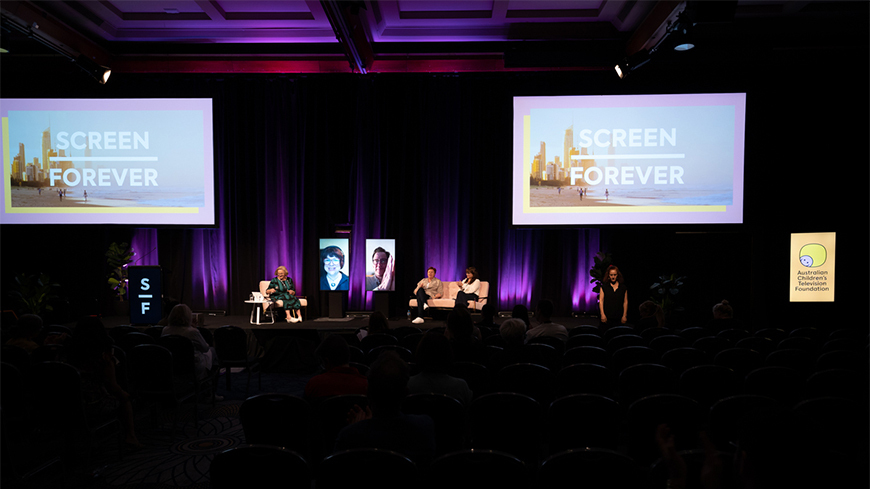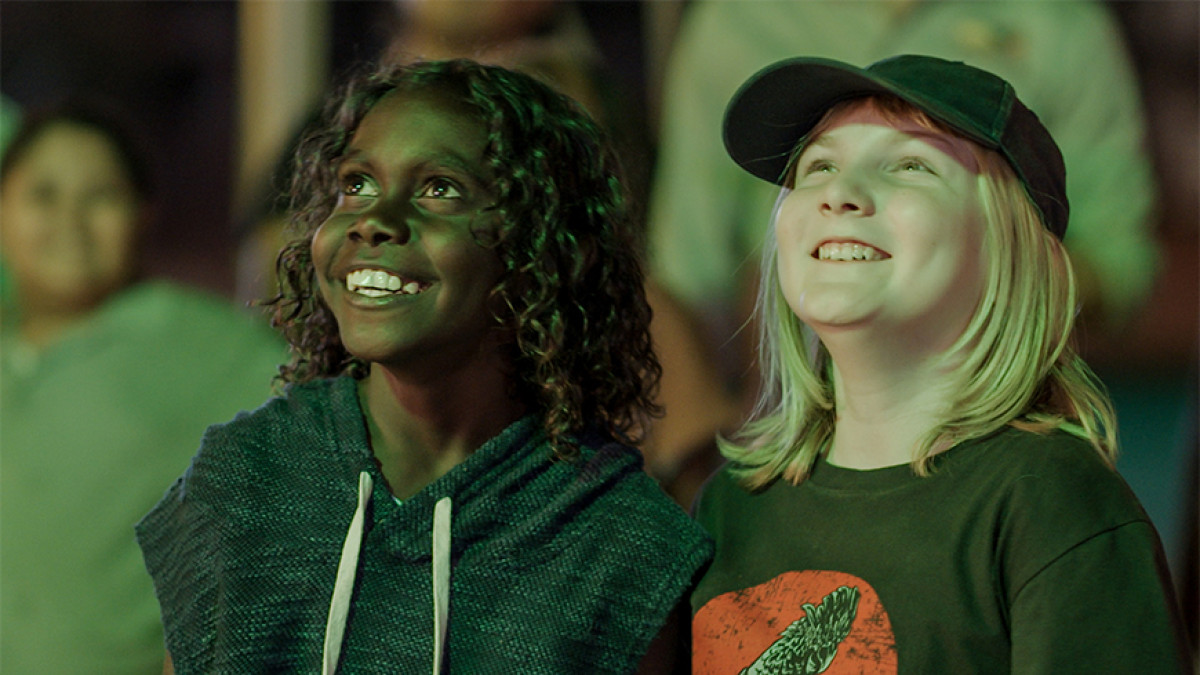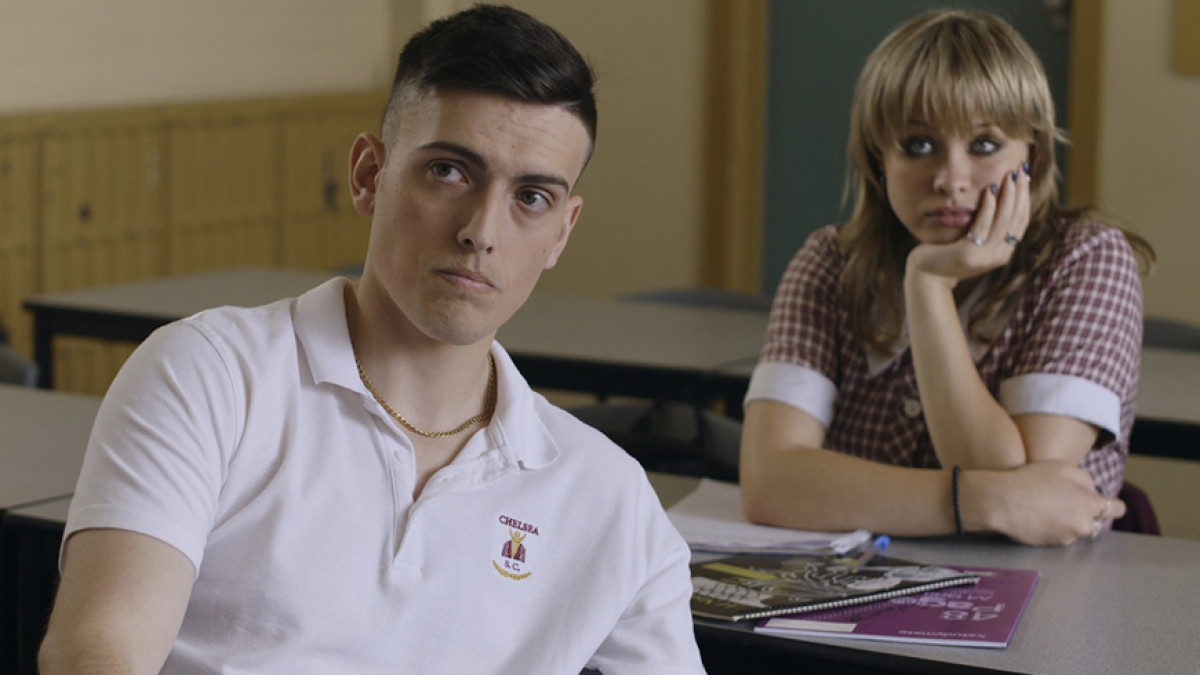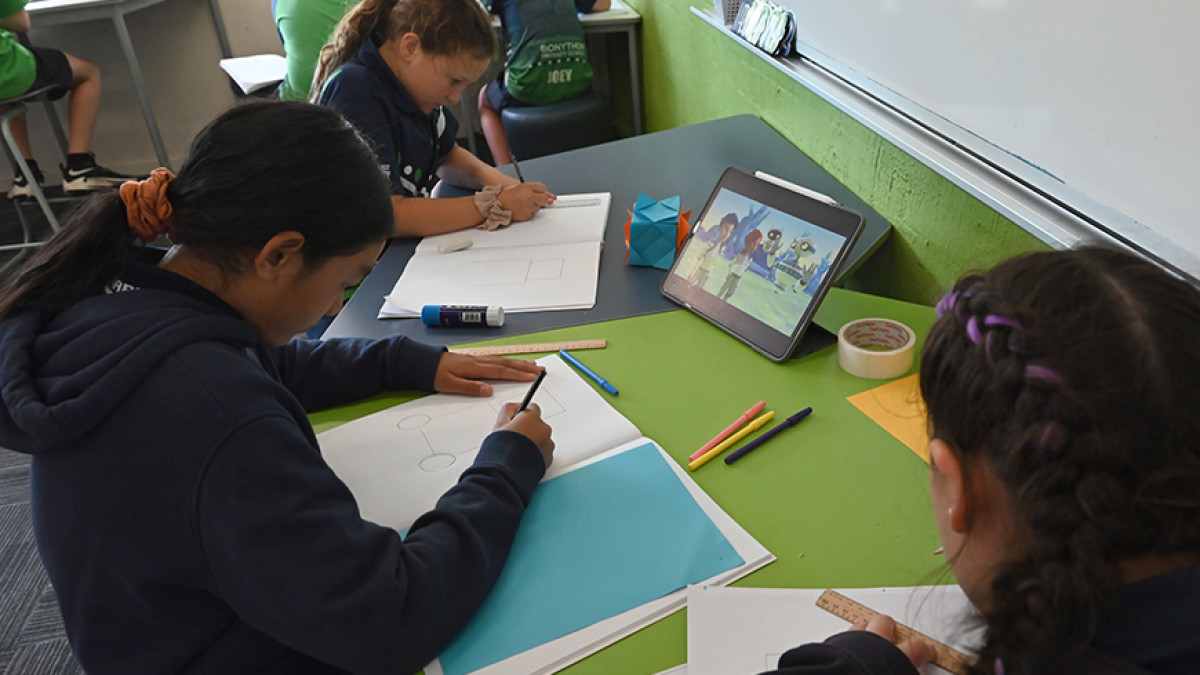ACTF News
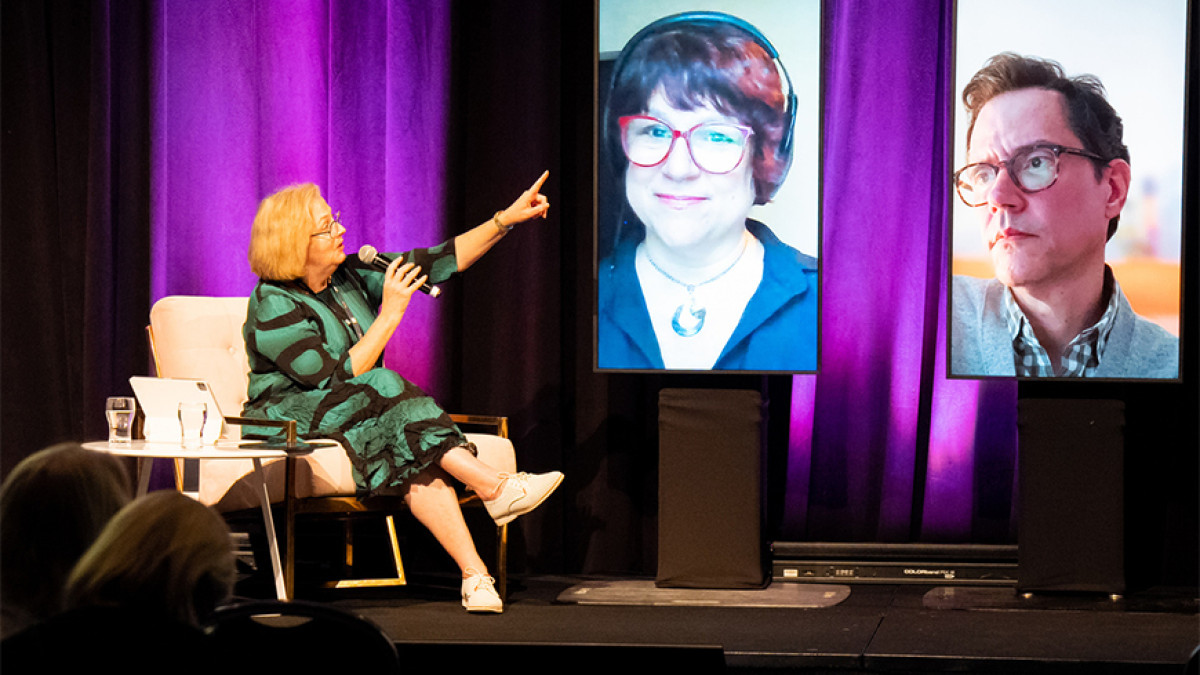
With an overwhelming array of children’s content on streaming services, public broadcasters continue to be a crucial platform providing free-to-air children’s television to viewers around the globe. The kindred relationships between the ABC, BBC, CBC and PBS are more important than ever to help provide parents and children with trusted quality content.
At this year’s Screen Forever conference on the Gold Coast, ACTF CEO Jenny Buckland was joined by public broadcasters from the UK, USA, Canada and Australia to discuss how they collaborate to ensure the child audience in each of their countries has access to quality children’s content.
What are the current challenges public broadcasters are facing?
While content for preschool-aged children is a strength for all broadcasters, there is a universal challenge in retaining this audience as they mature and appealing to the older school age demographic.
“The battleground is really the 8+ [year-old audience] across everyone’s services,” said Libbie Doherty, Head of Children’s Content at the ABC. “We appreciate that no longer is someone a Disney kid or a Nickelodeon kid or an ABC kid… they’re picking what they choose.” Anna Taganov, Head of BBC Children’s Content & Programming agreed, saying that it’s a similar situation for the BBC when it comes to converting those audiences from linear to iPlayer viewers. “[It’s] incredibly challenging because those kids go everywhere. They all of a sudden have a bunch of other activities they spend their spare time on: social, gaming, extracurricular activities, exams, you name it.” And when it comes to vying for their attention, Anna says public service marketing budgets cannot support a program launch in the same way as private businesses.
All the broadcasters expressed difficulty with discoverability and competing with other streaming platforms who offer vast catalogues of content. While they cannot compete on volume, Libbie highlighted that they instead focus on what they do best – thoughtfully curating excellent taste in content, featuring premium brands alongside amazing Australian content.
Marie McCann, CBC Kids Senior Director of Children's Content, highlighted the need for increasing brand awareness and reaching audiences through different platforms such as YouTube, which CBC uses as a third window after television and their streaming service. “We get easily triple the amount of views on YouTube,” Marie said. “We really want to make sure that we’re getting the content in front of the kids and we have to follow their use patterns, not expect them to come home to the family table to consume all their content.”
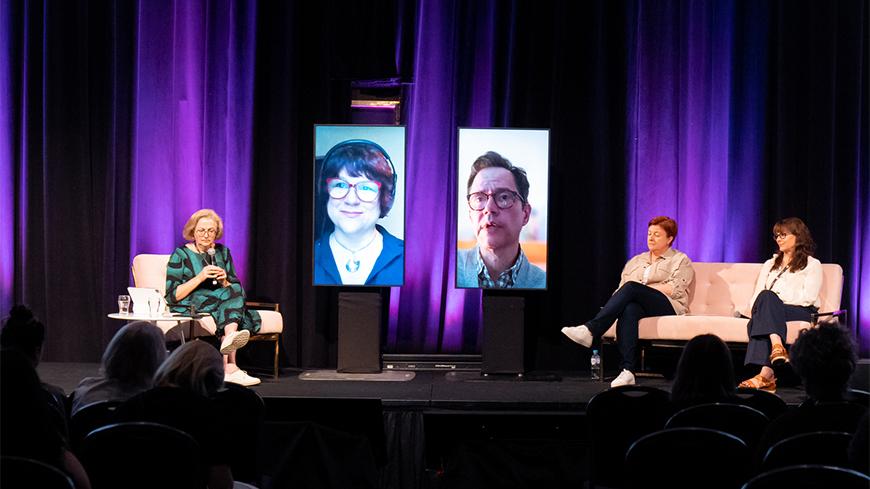
In light of these challenges, how can public broadcasters collaborate with each other?
The four broadcasters are regularly connected and passionate about working together on projects, whether they be a co-commission, initiative or enhanced buy into an existing series. A good example of a collaboration is the upcoming ABC/BBC co-commission The Spooky Files. The ABC also recently worked with CBC on the Kindred initiative, which put a call out for animation in the preschool and tween spaces. Libbie went on to say that they’re already looking into ways to collaborate with Adriano at PBS as they move forward and, in the past, had worked with PBS on the Odd Squad.
Anna from the BBC highlighted said they were lucky to be all be working in English speaking markets. “UK kids don’t watch dubbed, live action content ever,” she said, and being able to co-produce live action in English is a “game changer”. In the animation space, Bluey is a crown jewel on BBC iPlayer, with kids enjoying the Australian accents on screen and adopting the colloquial terms made popular by the series across the UK. Currently, her priorities are kid’s drama 7-12 or 7-9, comedies and animations.
Discussing collaboration with the US public broadcaster, Jenny noted that PBS Kids has a strong educational remit and particular curriculum needs. Adriano Schmid, Head of Content at PBS Kids in the United States, agreed. “Every piece of content that we work on, we need to have a specific curriculum… and our focus is primarily US children, which is already a hugely diverse group”. Adriano emphasised that it is this audience diversity which allows them the freedom to collaborate with overseas creatives, because they want to not only hold a mirror up to their audience but create a window for them to be exposed to other cultures. Currently, PBS is focusing on podcasts, multiplatform series and shows that have a strong curriculum.
When asked what they were looking for in a collaboration, Marie from CBC said: “In the pre-school space, animation rules… it’s one of the best ways to collaborate… pre-schoolers have a lot of universal likes and values across cultures”. Regarding live-action, school age and tween shows are also a great opportunity for international collaboration as kids are growing up in a global culture. While they are diverse, they’re interested in similar themes and stories will travel.
Can Australian producers approach these international public broadcasters directly?
Anna said the BBC is open to collaboration for ages 0-12, across all genres/formats, via their relationship with the ABC or without, through their commissioning website. Marie from CBC Kids is also open to collaboration but wants makers to keep in mind the scale of their commissioning capacity, which is only 50-75 hours of original content a year, and that they’d need a substantial creative Canadian element. The best way is for Australian producers to partner with Canadian producers. PBS is also open to being approached but Adriano urges creatives to do their homework and make sure what they’re pitching is going to line up with what the broadcaster is already offering.
Will public broadcasters do animated family or children’s movies?
In response to this question posed by an audience member, Libbie from the ABC commented that they are often priced out of the market and unable to compete with the budget of the streamers. Other broadcasters felt similarly, however noted that the idea of collaborating with each other on such films would be an interesting prospect and they can see the benefit in jointly funding an animated family movie.
This article was written by Rae Choi and Li-Kim Chuah from the ACTF content team, who attended the Screen Forever conference.
About the broadcasters:
The BBC is the biggest public broadcaster of children’s content in terms of output and original hours produced. BBC Children’s has around 400 employees. Their two free-to-air children’s channels, CBeebies (0-6) and CBBC (7-12), sit in a very dense linear market, bolstered by their online counterparts on BBC iPlayer and the CBeebies website.
With over 300 stations across the USA, PBS Kids’ free-to-air services are wide reaching. They are focused on kids aged 2-8, with their mission to use the power of media to open worlds of possibilities for all children. PBS has a multiplatform approach to kids’ content, with two broadcast channels, free VOD for home devices and the PBS Kids website.
Serving two-year-olds to tweens on a variety of platforms, CBC Kids connects is audiences via CBC national television, streaming on GEM, and YouTube. The CBC Kids website featuring games and Kids News is also popular, along with a new original series on TikTok for early teens. According to Marie, CBC’s strategy is to follow kids to the new platforms they’re using and making content to target the needs of users.
With a core audience of preschoolers on ABC Kids and school-aged children on ABC ME, ABC Children’s content is available on its iview platform, complemented by the ABC Kids website and children’s radio station and app, ABC Kids Listen.
